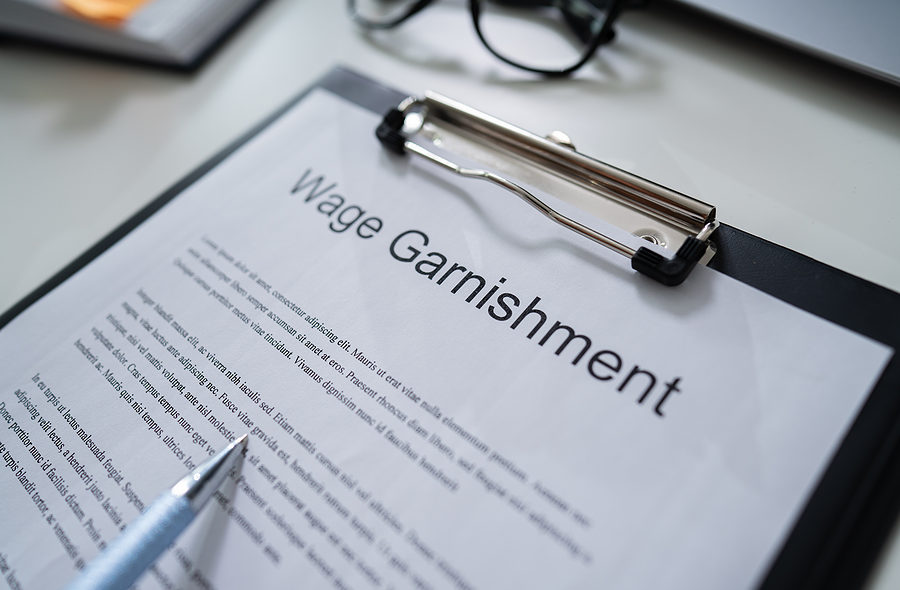When dealing with a collection on a debt, the last thing a consumer wants is to face a garnishment of his or her wages to satisfy the debt. Many times, once the wage garnishment process has started, consumers fear that it is too late to do anything to stop it. It can be stopped, however, with quick action and the right steps taken.
Contact an Attorney.
The laws surrounding how to properly object to a wage garnishment can be complicated, and unless the individual is savvy with the legal system, costly mistakes can be made. Even if the person’s wages have already been garnished, consulting with an attorney is still advisable. The key is to act quickly since the law only allows a short window of time for a person to object to a legal proceeding.
Knowing the Right Objection and When to Make It.
Several different options are available for objecting to a garnishment. It depends largely on where the person is in the legal process as well as the specific circumstances of the person facing the wage garnishment. When a person is served with notice of a wage garnishment, the court paperwork should include information regarding how long he or she has to file an answer or objection. Carefully look over this paperwork to see what timeline is being allotted to respond. The normal length of time given is 10 days, and even if the person does not completely object to the petition to garnish wages, by not responding, he or she could waive the ability to respond at all and receive a default judgment as a result.
It is important that the individual clearly provide the grounds for his or her objection since this is the crux of his or her case. An attorney can assist in ensuring that all necessary information is provided and in a timely manner to preserve the person’s ability to object.
Many times, the individual facing the garnishment simply cannot afford to have his or her wages garnished as it would put that person in a serious financial hardship, not allowing him or her to be able to pay for basic living expenses. If the individual’s income is solely through Social Security, he or she can object to the garnishment, as well.
Required Paperwork
If the garnishment is to satisfy a consumer debt, including medical debt and credit card debt, the person facing the judgment will need to submit required paperwork, including a claim of exemption and an official financial statement where he or she will provide monthly household income and expenses to support his or her claim. This paperwork will need to be filled out promptly and provided to the court and must be accurate and truthful to be accepted. The individual will also need to attend a hearing, bringing proof of income and expenses to support the claims made in the filed paperwork. Following the hearing, the judge can throw out the garnishment, modify it or overrule the objection.
For borrowers seeking to object to garnishments for student loan debt, they have a 30-day window to request either hardship assistance, to modify their payment plans, or to file a written objection and request a hearing.
Another form of objection can be if the garnishment judgment is incorrect. This process is more complicated, which is why an attorney is almost always recommended to ensure the objection is properly made. The incorrect judgment can be a matter of mistaken identity, assignment of a debt that does not belong to the person named on the lawsuit, or a case of identity theft. It helps to also reach out to the creditor in this situation, as well as to file a formal objection with the court. If the judgment is, in fact, correct, this can often be corrected outside of a hearing.
If the Objection Fails
If the person facing the wage garnishment is not successful in objecting, all hope is not lost. If the person objects but is stuck with the garnishment, if he or she absolutely cannot continue paying on the judgment and still cover his or her living expenses, it may be time to contact a bankruptcy attorney to discuss further options to help regain control of their financial future.
Please click here to read more.
If you have questions on this topic or are in financial crisis and considering filing for bankruptcy, contact an experienced Miami bankruptcy attorney who can advise you of all of your options. As an experienced CPA as well as a proven bankruptcy lawyer, Timothy Kingcade knows how to help clients take full advantage of the bankruptcy laws to protect their assets and get successful results. Since 1996 Kingcade Garcia McMaken has been helping people from all walks of life build a better tomorrow. Our attorneys’ help thousands of people every year take advantage of their rights under bankruptcy protection to restart, rebuild and recover. The day you hire our firm, we will contact your creditors to stop the harassment. You can also find useful consumer information on the Kingcade Garcia McMaken website at www.miamibankruptcy.com.

